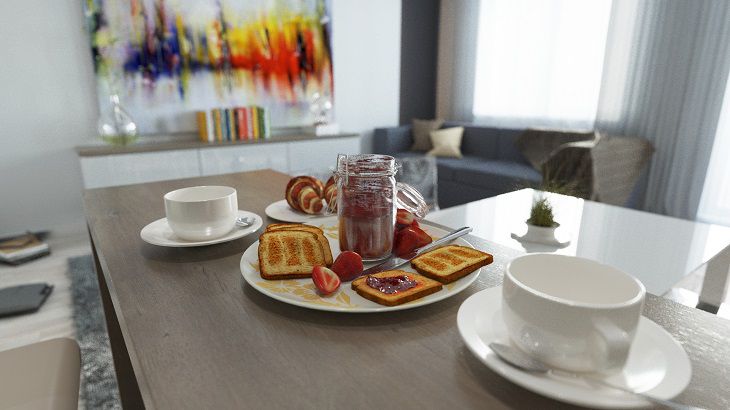Breakfast myths that no longer correspond to reality: what is better to eat in the morning
Breakfast... For some, life without eating in the morning is impossible, while others calmly drink only coffee, preferring not to burden the digestive system in the morning.
But even around a simple breakfast there are so many legends that it’s amazing.
"You have to have breakfast, otherwise you won't lose weight", "Porridge from a bag is evil, it's better and healthier to cook porridge yourself", "The more you eat in the morning, the less you'll eat during the day". Are all these statements true or are they myths?
Let's start with the statement that breakfast is a guarantee of losing extra pounds. It is based on the fact that eating in the morning speeds up metabolism, provides long-term satiety and fills with energy.
They say that this is why you want to move more actively, the body does not need to replenish its energy resources for a long time, and calories are burned more actively. This is not entirely true. What is important is not the fact that you have breakfast, and it does not matter what dishes are included in your breakfast, but rather the products that you eat in the morning.

If you have French fries and a steak for breakfast, you will not lose weight, no matter how hard you try. And eating a slice of cucumber and drinking coffee for breakfast is also a mistake: you will want to eat quickly after such a meal. And if you do not move after breakfast, but mostly sit, then you will not burn any calories or lose weight at all.
Where is the truth? Breakfast is necessary, but it is also important to choose the right products for it and stay active throughout the day.
Myth number two - cooking porridge for breakfast, sold in bags and requiring only boiling water, is useless and even harmful. After processing the grains, there is nothing useful in them, only sugar! And this is only half true.
It is true that instant cereals sometimes contain a lot of sugar. But they also contain useful things: vitamins, the same fiber.
If you don't want to wait for a pot of porridge at the stove in the morning, but want to quickly cook and eat breakfast, feel free to buy porridge in bags. Just look carefully at the amount of sugar in one serving and buy the product with the lowest sugar content.
The third myth is that the more you eat for breakfast, the less you will eat for lunch and dinner. And this opinion is also only partly true: it is not the quantity of food that is important, but its composition. You can overeat tomatoes or apples in the morning, but you will still be "drawn" to a delicious cutlet with potatoes at lunch.
Another question is what will the lunch portion be like compared to the hearty breakfast? Most likely, smaller than before.
Having breakfast, especially rich in slow carbohydrates and protein, even if it is a small bowl of porridge with fruit, you will not allow your blood sugar to jump every hour, forcing you to be distracted by snacks. Satiety will last a long time, and during the break you will eat less than you could.
Myth number four - you need to have breakfast before training to have the necessary energy for physical activity.
If you are planning on doing intense training, then yes, you need to have breakfast so that your muscles have somewhere to get glucose for functioning. If you are planning to do a light jog or even do yoga instead of fitness, then you can leave your stomach empty and eat 40 minutes after training.
And myth number five - you can forget about dinner and lunch, but you can't skip breakfast! It's the most important meal of the day! Not at all: if you're in a hurry, you can do without breakfast, and have a snack later, when you have a free minute at work.
But we cannot ignore the fact that those people who certainly paid attention to their morning meal, in general, began to eat more rationally, wisely and moderately. And this, by the way, is one of the cornerstones of the weight loss process.
Previously, we wrote about how to properly create a diet for training .
